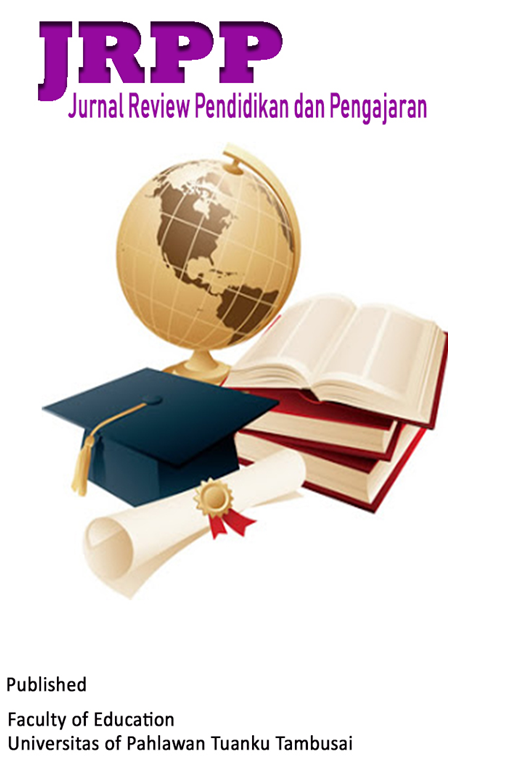MENGEMBANGKAN MODEL PEMBELAJARAN BERBASIS PROYEK: MEMOTIVASI SISWA MELALUI PEMBELAJARAN AKTIF DAN KOLABORATIF
DOI:
https://doi.org/10.31004/cdj.v2i3.21182Keywords:
Model Pembelajaran, Berbasis Proyek, Motivasi Siswa, Aktif dan KolaboratifAbstract
Pengabdian ini bertujuan untuk mengembangkan model pembelajaran berbasis proyek yang mampu memotivasi siswa melalui pendekatan pembelajaran aktif dan kolaboratif. Model ini dirancang untuk meningkatkan keterlibatan siswa, pemahaman konsep, dan keterampilan sosial mereka. Metode pengembangan model menggunakan pendekatan penelitian tindakan yang melibatkan kolaborasi antara guru dan siswa dalam proses perancangan dan pelaksanaan pembelajaran. Kegiatan pengabdian dilakukan melalui observasi kelas, wawancara, dan analisis motivasi belajar siswa. Hasil pengabdian menunjukkan bahwa model pembelajaran berbasis proyek ini merupakan solusi efektif dalam meningkatkan motivasi siswa, karena terlibat aktif dalam proses pembelajaran, termotivasi dengan tugas proyek yang relevan dengan kehidupan sehari-hari. Selain itu, kolaborasi antar siswa dalam kelompok proyek juga memperkuat keterampilan sosial dan kerjasama. Pelatihan yang dilaksanakan memberikan kontribusi terhadap pengembangan strategi pembelajaran yang dapat memotivasi siswa secara efektif, sekaligus meningkatkan pemahaman konsep dan keterampilan sosial. Model pembelajaran berbasis proyek ini dapat diadopsi dan diadaptasi oleh guru di berbagai jenjang pendidikan untuk menciptakan lingkungan belajar yang stimulatif dan berdampak positif terhadap motivasi dan hasil belajar siswa.References
AAAS. (1993). Benchmarks for science literacy. Project 2061. Oxford University Press.
Ari Riswanto, S. A. (2017). Learning Motivation and Student Achievement. The International Journal of Counseling and Education, 42-47.
Ausubel, D. P. (1968). Educational psychology: A cognitive view. Holt, Rinehart and Winston.
Barron, B. (2003). When Smart Groups Fail. The Journal of the Learning Sciences, 12(3), 307-359.
Blumenfeld, P. C., Soloway, E., Marx, R. W., Krajcik, J. S., Guzdial, M., & Palincsar, A. (1991). Motivating Project-Based Learning: Sustaining the Doing, Supporting the Learning. Educational Psychologist, 26(3-4), 369-398.
Dewey, J. (1938). Experience and Education. Kappa Delta Pi.
Furco, A. (1996). Service-Learning: A Balanced Approach to Experiential Education. Expanding Boundaries: Serving and Learning, 24, 40.
Hmelo-Silver, C. E. (2004). Problem-Based Learning: What and How Do Students Learn? Educational Psychology Review, 16(3), 235-266.
Hmelo-Silver, C. E. (2004). Problem-Based Learning: What and How Do Students Learn? Educational Psychology Review, 16(3), 235-266.
Hung, W. (2008). The 9-step problem design process for problem-based learning: Application of the 3C3R model. Educational Research Review, 3(2), 167-177.
Johnson, D. W., & Johnson, R. T. (1999). Making cooperative learning work. Theory into practice, 38(2), 67-73.
Johnson, D. W., & Johnson, R. T. (1999). Making Cooperative Learning Work. Theory into Practice, 38(2), 67-73.
Jonassen, D. H. (1999). Designing constructivist learning environments. Educational Technology, 39(3), 47-51.
Jonassen, D. H. (1999). Designing Constructivist Learning Environments. Educational Technology, 39(3), 47-51.
Juliati, J., Hermawan, W., & Firman, M. (2019). Pendidikan kewarganegaraan sebagai wahana untuk meningkatkan kesadaran hidup yang lebih baik bagi sesama. Jurnal Civics: Media Kajian Kewarganegaraan, 16(1), 29-37.
Krajcik, J. S., & Blumenfeld, P. C. (2006). Project-Based Learning. In R. K. Sawyer (Ed.), The Cambridge Handbook of the Learning Sciences (pp. 317-333). Cambridge University Press.
Krajcik, J., Blumenfeld, P. C., Marx, R. W., Bass, K. M., Fredricks, J., & Soloway, E. (1998). Inquiry in Project-Based Science Classrooms: Initial Attempts by Middle School Students.
Mayer, R. E. (2002). Cognitive theory of multimedia learning. In R. E. Mayer (Ed.), The Cambridge handbook of multimedia learning (pp. 31-48). Cambridge University Press.
National Research Council. (2000). Inquiry and the National Science Education Standards: A Guide for Teaching and Learning. National Academies Press.
Ningsih, S. R., Ahman, E., & Riswanto, A. (2020). Effectiveness of Using the Project-Based Learning Model in Improving Creative-Thinking Ability. Universal Journal of Educational Research, 8(4), 1628-1635.
Piaget, J. (1976). Piaget's theory. In P. H. Mussen (Ed.), Handbook of child psychology (Vol. 1, pp. 703-732). Wiley.
Piaget, J. (1976). Piaget's Theory. In P. H. Mussen (Ed.), Handbook of Child Psychology (Vol. 1, pp. 703-732). Wiley.
Riswanto, A. (2016). Pengaruh model pembelajaran kooperatif tipe team assisted individualization terhadap motivasi belajar mahasiswa. Mosharafa, 5(3), 293-304.
Riswanto, A., & Aryani, S. (2017). Learning motivation and student achievement: description analysis and relationships both. The International Journal of Counseling and Education, 2(1), 42-47.
Septiana, T. (2020). Pembelajaran bela negara dalam pendidikan kewarganegaraan sebagai upaya membina semangat nasionalisme mahasiswa STKIP PGRI Kota Sukabumi. Sosio Religi: Jurnal Kajian Pendidikan Umum, 18(2).
Suswandy, S., Firman, M., Juliati, J., & Anugrah, A. W. (2020). Partisipasi Politik Anak Muda dalam Organisasi Aktivis Online: Dampaknya pada Perubahan Sosial. Jurnal Pendidikan Tambusai, 4(2).
Thomas, J. W. (2000). A Review of Research on Project-Based Learning. Retrieved from http://www.bobpearlman.org/BestPractices/PBL_Research.pdf
Thomas, J. W. (2000). A Review of Research on Project-Based Learning. Retrieved from http://www.bobpearlman.org/BestPractices/PBL_Research.pdf
Thomas, J. W. (2000). A Review of Research on Project-Based Learning.
Vygotsky, L. S. (1978). Mind in society: The development of higher psychological processes. Harvard U
Downloads
Published
How to Cite
Issue
Section
License
Copyright (c) 2021 Muhammad Firman

This work is licensed under a Creative Commons Attribution-ShareAlike 4.0 International License.















